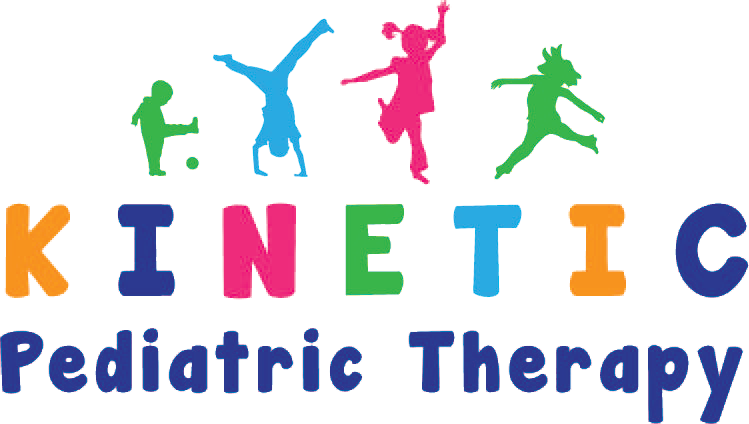
The Impact of Early Behavioral Interventions on Long-Term Student Success
Early childhood is a critical period for development, and the right support during these formative years can set the stage for lifelong success. Early behavioral interventions are among the most effective tools for helping children overcome developmental challenges and build essential skills. These targeted strategies can significantly impact a child’s ability to navigate social, emotional, and academic environments, ensuring they reach their full potential.
At Kinetic Pediatric Contract Therapy, we specialize in providing personalized early behavioral interventions that address each child’s unique needs. By intervening early, we empower children and their families to overcome challenges and build a foundation for a brighter future.
What Are Early Behavioral Interventions?
Early behavioral interventions are structured programs designed to address developmental and behavioral challenges in young children. These interventions use evidence-based techniques to improve communication, social skills, emotional regulation, and adaptive behaviors. Early interventions are most effective for children with developmental delays, autism spectrum disorder (ASD), ADHD, and other behavioral or learning challenges.
The key principles of early behavioral interventions include:
- Identifying challenges as early as possible
- Teaching functional skills that promote independence
- Reinforcing positive behaviors while reducing problematic ones
- Providing a supportive environment for learning and growth
Early intervention capitalizes on the brain’s neuroplasticity during the early years, making it easier to develop new skills and behaviors.
The Benefits of Early Behavioral Interventions
The advantages of early behavioral interventions are profound, affecting multiple areas of a child’s development. Some of the key benefits include:
- Improved Communication Skills
Children with communication challenges often struggle to express their needs or understand others. Early behavioral interventions help develop language skills, alternative communication methods, and social cues.
- Enhanced Social Interaction
Early interventions teach children how to engage with peers, share, take turns, and navigate social settings. These skills are essential for building relationships and participating in group activities.
- Emotional Regulation
Learning to manage emotions is a crucial aspect of childhood development. Early behavioral interventions help children identify their feelings, develop coping strategies, and reduce instances of emotional outbursts.
- Academic Readiness
By addressing behavioral challenges early, interventions prepare children for success in school. Improved focus, listening skills, and self-regulation allow children to engage more effectively in classroom environments.
- Greater Family Support
Early interventions also provide guidance and resources for families, empowering parents to reinforce positive behaviors and create a nurturing home environment.
The Importance of Timing: Why Early Matters
The sooner early behavioral interventions begin, the more effective they are likely to be. During early childhood, the brain is highly adaptable, making it easier to develop new skills and change behavioral patterns. Delaying intervention can lead to challenges becoming more ingrained, requiring more intensive support later in life.
Research shows that children who receive early behavioral interventions are more likely to:
- Meet developmental milestones
- Transition successfully to school
- Build lasting social and emotional skills
- Experience fewer behavioral challenges as they grow
Techniques Used in Early Behavioral Interventions
Early behavioral interventions use a variety of evidence-based techniques tailored to a child’s specific needs. These include:
- Applied Behavior Analysis (ABA)
ABA is a widely recognized approach that uses positive reinforcement to teach new skills and reduce undesirable behaviors. It is particularly effective for children with autism spectrum disorder.
- Positive Behavioral Support (PBS)
PBS focuses on understanding the reasons behind a child’s behavior and implementing strategies to encourage positive changes. This approach emphasizes creating supportive environments that meet a child’s needs.
- Social Skills Training
This technique helps children develop critical interpersonal skills, such as making eye contact, initiating conversations, and understanding social norms.
- Parent Coaching
Early behavioral interventions often include parent coaching, equipping families with tools and strategies to support their child’s development at home.
- Play-Based Therapy
Play-based therapy uses structured play activities to teach skills in a fun and engaging way. It is particularly effective for younger children.
At Kinetic Pediatric Contract Therapy, we use a combination of these techniques to create individualized plans for each child.
How Behavioral Therapy in Schools Can Shape a Child’s Future
The Role of Parents in Early Behavioral Interventions
Parents play a vital role in the success of early behavioral interventions. As a child’s primary caregivers, parents are uniquely positioned to reinforce positive behaviors and provide consistent support. Here’s how parents can contribute:
- Participating in Therapy Sessions: Learning techniques alongside therapists ensures consistency across home and therapy settings.
- Implementing Strategies at Home: Practicing skills during daily routines helps children generalize what they learn in therapy.
- Providing Positive Reinforcement: Acknowledging and rewarding progress encourages continued growth.
- Communicating with Therapists: Sharing insights about a child’s behavior and progress helps therapists adjust interventions as needed.
When parents actively engage in the intervention process, children are more likely to achieve lasting success.
Early Behavioral Interventions for Specific Needs
Early behavioral interventions can be tailored to address a wide range of developmental and behavioral challenges. Here’s how they can benefit children with specific needs:
Autism Spectrum Disorder (ASD)
Early intervention programs for ASD focus on improving communication, reducing sensory sensitivities, and developing social skills. Techniques like ABA are particularly effective in helping children with autism navigate daily life.
ADHD
For children with ADHD, interventions emphasize improving focus, impulse control, and organization skills. Play-based therapy and positive reinforcement are commonly used to support these goals.
Speech Delays
Behavioral interventions for speech delays focus on teaching language skills, improving articulation, and fostering confidence in communication.
Emotional and Behavioral Challenges
Children with emotional regulation difficulties or disruptive behaviors benefit from strategies that teach coping mechanisms and encourage self-control.
Why Choose Kinetic Pediatric Contract Therapy for Early Interventions?
At Kinetic Pediatric Contract Therapy, we are dedicated to providing high-quality early behavioral interventions that empower children and families. Here’s why we’re the trusted choice:
- Experienced Therapists: Our team specializes in working with young children and uses proven techniques to achieve results.
- Individualized Plans: We tailor interventions to each child’s unique needs, ensuring the best outcomes.
- Collaborative Approach: We work closely with families, educators, and other professionals to create a cohesive support system.
Visit our behavioral therapy page to learn more about how we can help your child reach their full potential.
Building a Bright Future with Early Behavioral Interventions
The impact of early behavioral interventions cannot be overstated. By addressing challenges during critical developmental years, these interventions provide children with the skills they need to succeed academically, socially, and emotionally. They also offer families the tools and support needed to create a nurturing environment for growth.
If your child could benefit from early intervention, contact Kinetic Pediatric Contract Therapy today. Together, we can create a path toward a brighter, more fulfilling future.
🧠 Empower your students with personalized behavioral support! Kinetic Pediatric Contract Therapy offers tailored Behavioral Therapy services to schools across North Carolina, helping children thrive both academically and socially. Our expert therapists work closely with educators and families to address emotional, social, and behavioral challenges, ensuring each child receives the care they need to succeed. 🌟 Let’s create a positive learning environment together—contact us today to bring our Behavioral Therapy services to your school and support every student’s success!
Please Share




